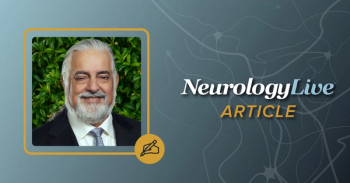
Viz LVO Software Accurately Detects LVOs in Real-World Setting
The triage software yielded a sensitivity and specificity of 59.7% and 91.5%, respectively, for all scans in a study including more than 1000.
Results from a retrospective analysis found that a computer aided triage software, Viz LVO, can accurately detect large vessel occlusion (LVO) in the real-world setting. The data was presented at the American Stroke Association’s (ASA)
First author Jacob Morey, MD candidate, Icahn School of Medicine, Mount Sinai Health System, and colleagues included 1139 scans in the study, 171 Viz LVO notifications, and 144 confirmed LVOs. All patients received a computed tomography angiography (CTA) for a preliminary stroke diagnosis between May 2019 and July 2020.
The ground truths were determined from impressions by radiology attendings. Researchers documented that the sensitivity and specificity for all scans were 59.7% and 91.5%, respectively.
Viz LVO became the first FDA-cleared technology indicated to automatically detect and triage suspected LVOs in February 2018.2 The clinically validated technology uses artificial intelligence (AI) to automatically detect suspected LVOs on CTA imaging and directly alert the on-call stroke specialist about potentially treatable patients across a multi-hospital network.3
There was additional analysis on the algorithm’s performance on all scans and subsets: (1) internal carotid artery (ICA)-T and middle cerebral artery (MCA)-M1; and (2) ICA-T, MCA-M1, and MCA-M2. For subset 1, the sensitivity was 91.0% compared to 76.2% in subset 2. Furthermore, the positive and negative predictive values were 50.3% and 94%, 41.8% and 99.3%, and 47.5% and 97.4% for the 3 groups, respectively.1
READ MORE:
"The relatively low rate of LVOs per stroke diagnosis, variation in scan quality, and ‘can’t miss’ nature of this diagnosis leads to a seemingly low sensitivity for all scans, which was significantly improved when confined to the ICA-T, MCA-M1, +/- MCA-M2 populations,” Morey et al wrote. The positive and negative predictive values translated to an accuracy of 87.5%, 91.4%, and 90.1%, and an area under the curve of 0.76, 0.91, and 0.84, respectively.
The only existing peer reviewed data describing the performance of Viz LVO was published in November 2020. In CTAs from 2544 consecutive patients across 139 US hospitals using scanners from multiple manufacturers, Viz LVO demonstrated 96% sensitivity and 94% specificity identifying LVOs.4
A total of 163 ground truth LVOs were identified in the study. The median time to notification of the software was 5 minutes and 45 seconds, discounting 7 historical cases which were sent to the device manually for testing. Additionally, 4.14% of scans were rejected by the device due to technical reasons such as metal artifacts in close proximity to the Circle of Willis and were therefore excluded from the analysis.
Investigators of that study concluded that AI-powered detection and triage of stroke, coupled with a mobile platform for fast and easy communication may be an essential tool for stroke teams.
For more coverage of ISC 2021,
REFERENCES
1. Morey J, Zhang X, Marayagi NF, et al. Real-world accuracy of artificial intelligence-based triage in large vessel occlusion stroke. Presented at International Stroke Conference; March 17–19. Abstract LB P7
2. Viz.ai granted de novo FDA clearance for first artificial intelligence triage software. Viz.ai. February 15, 2018. Accessed March 26, 2021. https://www.prnewswire.com/news-releases/vizai-granted-de-novo-fda-clearance-for-first-artificial-intelligence-triage-software-300599381.html
3. A.I. powered synchronized stroke care. Viz.ai. https://www.viz.ai/ischemic-stroke . Accessed March 26, 2021.
4. Shalitin O, Sudry N, Mates J, Golan D. AI-powered stroke triage system performance in the wild. JESTM. (2020) 12(3), 01–04.
Newsletter
Keep your finger on the pulse of neurology—subscribe to NeurologyLive for expert interviews, new data, and breakthrough treatment updates.










